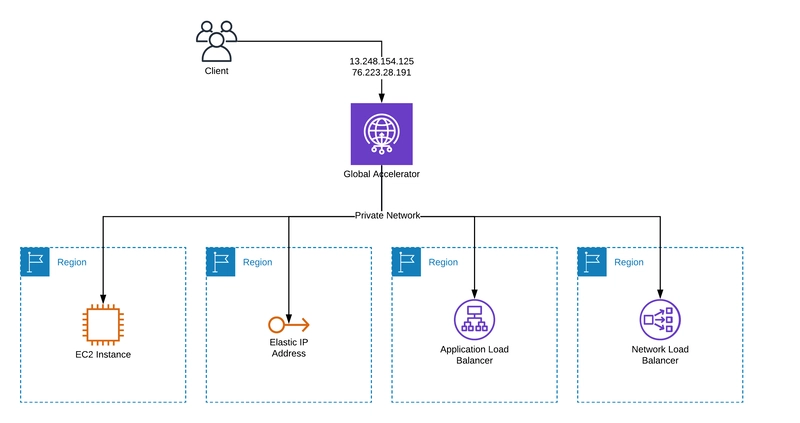Modern business operations are the backbone of today's digital-first era through cloud computing technologies. The fast advancement of cloud technologies has led to the development of two primary strategies, multi-cloud and hybrid cloud. Your selection of cloud strategy depends on your organizational needs, established goals, and system requirements. Organizations seeking to train their IT team through cloud computing courses at Pune universities must demonstrate a clear understanding of multi-cloud and hybrid cloud operating models.
What is a hybrid cloud?
The hybrid cloud constitutes a computing platform that unites private infrastructure with public cloud platforms so data can smoothly transition between both environments. Organizations can maintain vital data on their premises through this system and benefit from the public cloud economy and scalability.
Benefits of Hybrid Cloud:
The hybrid cloud model enables businesses with strict data protection needs to utilize private data storage alongside public cloud resources for dealing with non-sensitive data.
Through hybrid cloud systems, businesses achieve maximum cost performance by balancing their initial funding outlays and present operational expenses.
Business continuity receives support from hybrid cloud because it provides reliable backup services to help prevent operational disruptions from outages or disasters.
What is multi-cloud?
Businesses employing the multi-cloud approach select multiple cloud computing services originating from distinct companies. A multi-cloud approach helps organizations avoid vendor constraints while providing access to numerous choices that enable them to choose ideal components from different suppliers.
Benefits of Multi-Cloud:
A multi-cloud approach prevents organizations from relying on one cloud provider, thus gaining operational freedom and flexibility.
Deploying workloads across multiple cloud platforms in a multi-cloud setup results in increased system availability and more resilience through platform diversity.
Businesses achieve better performance by picking cloud services that match their operational requirements through cost analysis, regional service placement, and specialized performance targets.
Which One Is Right for Your Business?
Choose Hybrid Cloud If:
When maintaining sensitive or governed data assets, your business must select hybrid cloud computing. This approach suits organizations that need to keep their on-site infrastructure, want smooth cloud migration, or succeed with low-latency applications within their internal systems.
Choose Multi-Cloud If:
Using multiple cloud vendors becomes optimal when you need each cloud provider's benefits. Organizations that need to prevent vendor commitment while needing global resilience along with workload optimization through different cloud providers should select this approach.
You need to evaluate your existing infrastructure together with your requirements for compliance as well as budget allowances and your organization's future IT strategy to select the optimal choice. Enrolling in a cloud computing course in Pune provides individuals with practical knowledge about deployment methods for the mentioned cloud models.
Challenges of Hybrid and Multi-Cloud Environments
The cloud models present multiple benefits to users despite their specific implementation obstacles.
Hybrid Cloud Challenges:
Integration between on-premises systems and those hosted in the cloud creates difficulties for hybrid cloud deployments; thus, organizations must establish secure links to resolve this issue. The security infrastructure must establish strong governance frameworks to defend valuable data in these systems. Implementing a private infrastructure increases the cost burden at the start of deployment more than a total public cloud implementation would.
Multi-Cloud Challenges:
Managing multiple cloud environments at once produces difficulties that make multi-cloud strategies complicated to handle. Integrating multiple clouds creates visibility problems between platforms alongside demanding experts who handle multi-cloud complexity.
Elemental services show the need to emphasize both proper training and certification needs. The increasing number of professionals select cloud computing courses in Pune for direct practice and skills development to handle elaborate cloud system architectures. A cloud computing certification in Pune demonstrates your technical expertise, which results in better career opportunities in this competitive field.
The Role of Cloud Education in Making the Right Choice
Both decision-makers and IT professionals require continuous knowledge about modern cloud trends. The quick growth of cloud adoption demands professionals who understand how to create and handle efficient, secure, scalable cloud systems.
A cloud computing course in Pune provides detailed training about hybrid and multi-cloud deployment strategies along with other cloud models. Cloud computing courses offer students instruction about creating cloud architecture designs and exposure to IaaS, PaaS, and SaaS service frameworks and security procedures for the cloud environment. The curriculum includes multi-cloud deployment education and monitoring training with practical case studies and hands-on labs for student lab experience.
Obtaining a cloud computing certification in Pune will give you a significant advantage when seeking further specialization. Obtaining cloud computing certifications improves your technical abilities, proving your dedication to mastering cloud technologies.
Conclusion
Organizations face multiple options between hybrid cloud and multi-cloud solutions needing individual evaluation for best selection. Every business solution benefits from one of these methods because they meet distinct business requirements. The hybrid cloud delivers better control and compliance features, yet multi-cloud provides superior flexibility and vendor independence. Your selection between hybrid and multi-cloud does not matter since getting the right expertise is essential for success.
Professionals and businesses gain tremendous value from obtaining a cloud computing course in Pune. The necessary skills to implement and control cloud solutions in today’s quickly changing technological scenario are enabled through this training. Students who complete cloud computing certification in Pune while studying cloud computing are ready to advance their careers and organizational capabilities in the cloud computing age.


